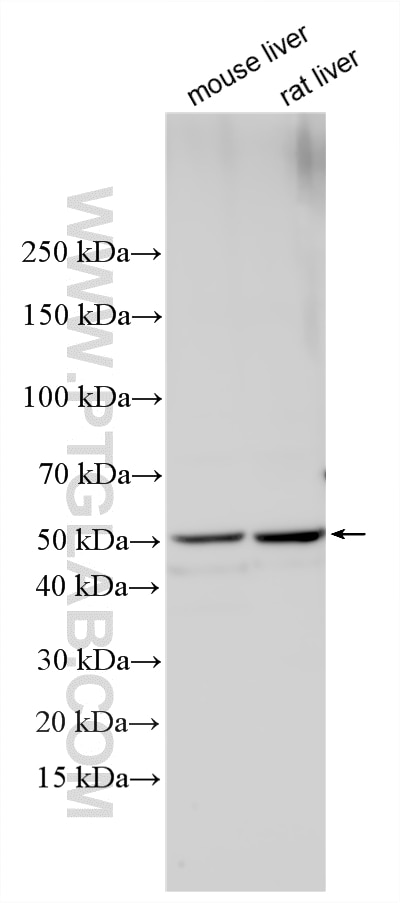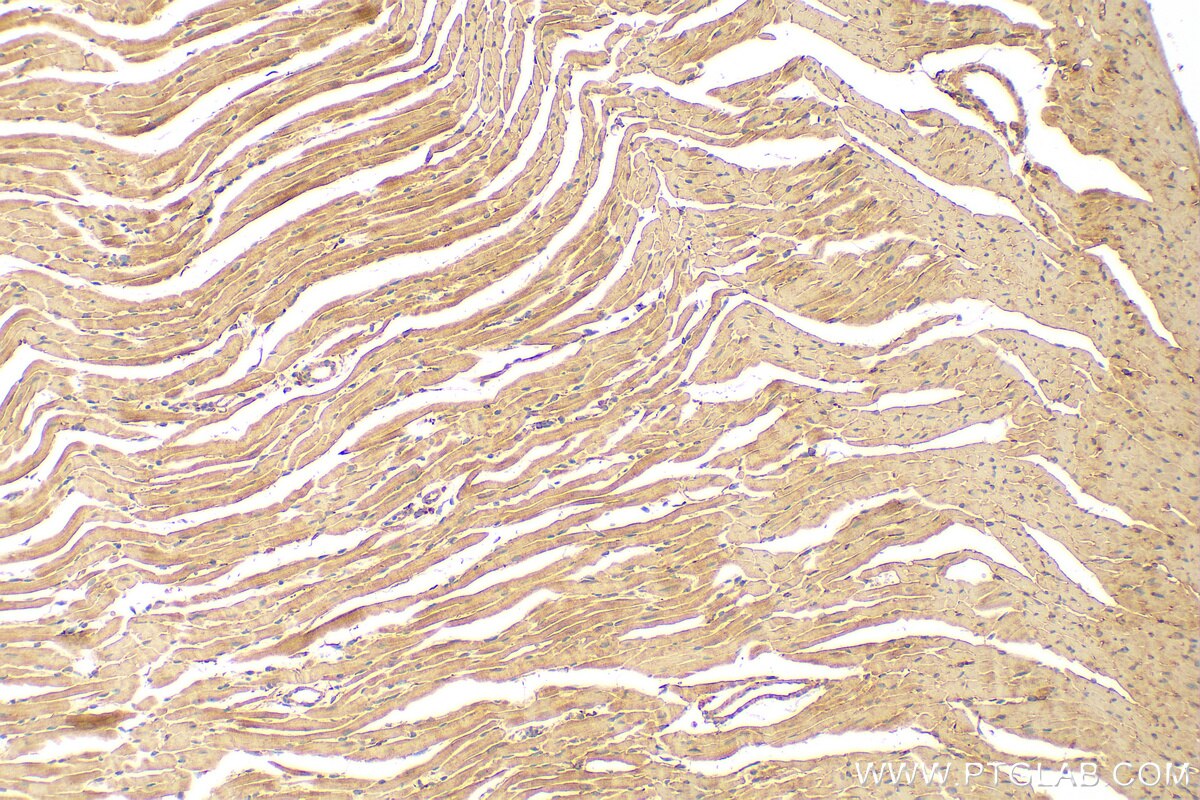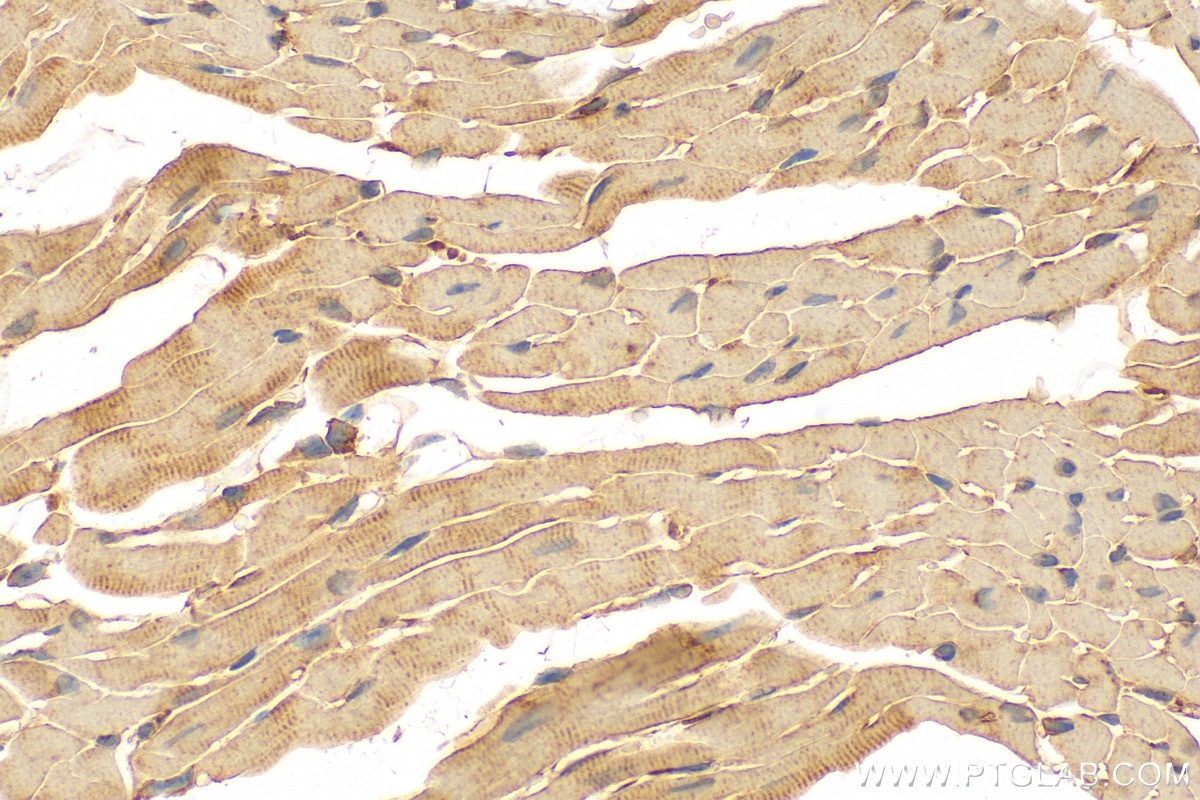Tested Applications
| Positive WB detected in | mouse liver tissue, rat liver tissue |
| Positive IHC detected in | mouse heart tissue Note: suggested antigen retrieval with TE buffer pH 9.0; (*) Alternatively, antigen retrieval may be performed with citrate buffer pH 6.0 |
Recommended dilution
| Application | Dilution |
|---|---|
| Western Blot (WB) | WB : 1:1000-1:6000 |
| Immunohistochemistry (IHC) | IHC : 1:50-1:500 |
| It is recommended that this reagent should be titrated in each testing system to obtain optimal results. | |
| Sample-dependent, Check data in validation data gallery. | |
Published Applications
| KD/KO | See 1 publications below |
| WB | See 10 publications below |
| IF | See 2 publications below |
Product Information
28034-1-AP targets FADS2 in WB, IHC, IF, ELISA applications and shows reactivity with mouse, rat samples.
| Tested Reactivity | mouse, rat |
| Cited Reactivity | mouse |
| Host / Isotype | Rabbit / IgG |
| Class | Polyclonal |
| Type | Antibody |
| Immunogen |
CatNo: Ag27709 Product name: Recombinant human FADS2 protein Source: e coli.-derived, PGEX-4T Tag: GST Domain: 1-124 aa of BC009011 Sequence: MGKGGNQGEGAAEREVSVPTFSWEEIQKHNLRTDRWLVIDRKVYNITKWSIQHPGGQRVIGHYAGEDATDAFRAFHPDLEFVGKFLKPLLIGELAPEEPSQDHGKNSKITEDFRALRKTAEDMN Predict reactive species |
| Full Name | fatty acid desaturase 2 |
| Calculated Molecular Weight | 445 aa, 49 kDa |
| Observed Molecular Weight | 46-52 kDa |
| GenBank Accession Number | BC009011 |
| Gene Symbol | FADS2 |
| Gene ID (NCBI) | 9415 |
| RRID | AB_2918142 |
| Conjugate | Unconjugated |
| Form | Liquid |
| Purification Method | Antigen affinity purification |
| UNIPROT ID | O95864 |
| Storage Buffer | PBS with 0.02% sodium azide and 50% glycerol, pH 7.3. |
| Storage Conditions | Store at -20°C. Stable for one year after shipment. Aliquoting is unnecessary for -20oC storage. 20ul sizes contain 0.1% BSA. |
Background Information
Fatty acid desaturase 2 (FADS2) is responsible for the first desaturation reaction in the synthesis of highly unsaturated fatty acids (HUFAs), such as arachidonic acid (20:4n-6) and eicosapentaenoic acid (20:5n-3), and is involved in Mead acid (20:3n-9) production during essential fatty acid deficiency (EFAD) (PMID: 29353041). This is important when temperatures changes and the membrane is under distress. It has 4 isoforms and can be detected as 46-52 kDa.
Protocols
| Product Specific Protocols | |
|---|---|
| IHC protocol for FADS2 antibody 28034-1-AP | Download protocol |
| WB protocol for FADS2 antibody 28034-1-AP | Download protocol |
| Standard Protocols | |
|---|---|
| Click here to view our Standard Protocols |
Publications
| Species | Application | Title |
|---|---|---|
Cell Chem Biol FADS2-dependent fatty acid desaturation dictates cellular sensitivity to ferroptosis and permissiveness for hepatitis C virus replication.
| ||
Immun Inflamm Dis Identification of Ferroptosis-Related Gene in Age-Related Macular Degeneration Using Machine Learning | ||
Int J Mol Sci Polyamine Pathway Inhibitor DENSPM Suppresses Lipid Metabolism in Pheochromocytoma Cell Line | ||
Nat Cell Biol Zeb1 mediates EMT/plasticity-associated ferroptosis sensitivity in cancer cells by regulating lipogenic enzyme expression and phospholipid composition | ||
Adv Sci (Weinh) Metabolic Interplay in Acute Lung Injury: PARK7 Integrates FADS1/2-Dependent PUFA Metabolism and H3K14 Lactylation to Attenuate Endothelial Ferroptosis and Dysfunction |
Reviews
The reviews below have been submitted by verified Proteintech customers who received an incentive for providing their feedback.
FH Kristen (Verified Customer) (12-15-2025) | Used to evaluate protein expression of FADS2 in syngeneic mouse melanoma cell lines. Variable expression levels, but correct band size seen in some lines
|
FH Casey (Verified Customer) (11-30-2025) | Needed to use a lower antibody dilution (1:500) to see band
|
FH Haley (Verified Customer) (11-26-2025) | Great reproducible results using this antibody
|
FH Jelan (Verified Customer) (10-31-2025) | We use the antibody FAPS2 across various cell lines that we have lysed to check for bands on our western blot to spot the difference and see if our cell lines accurately over expressed or under expressed certain drug treatments we have treated our cells with.
|
FH Xianfeng (Verified Customer) (02-18-2020) | Works well with overexpressed mouse FADS2 but no signal with endogenouse mouse FADS2.
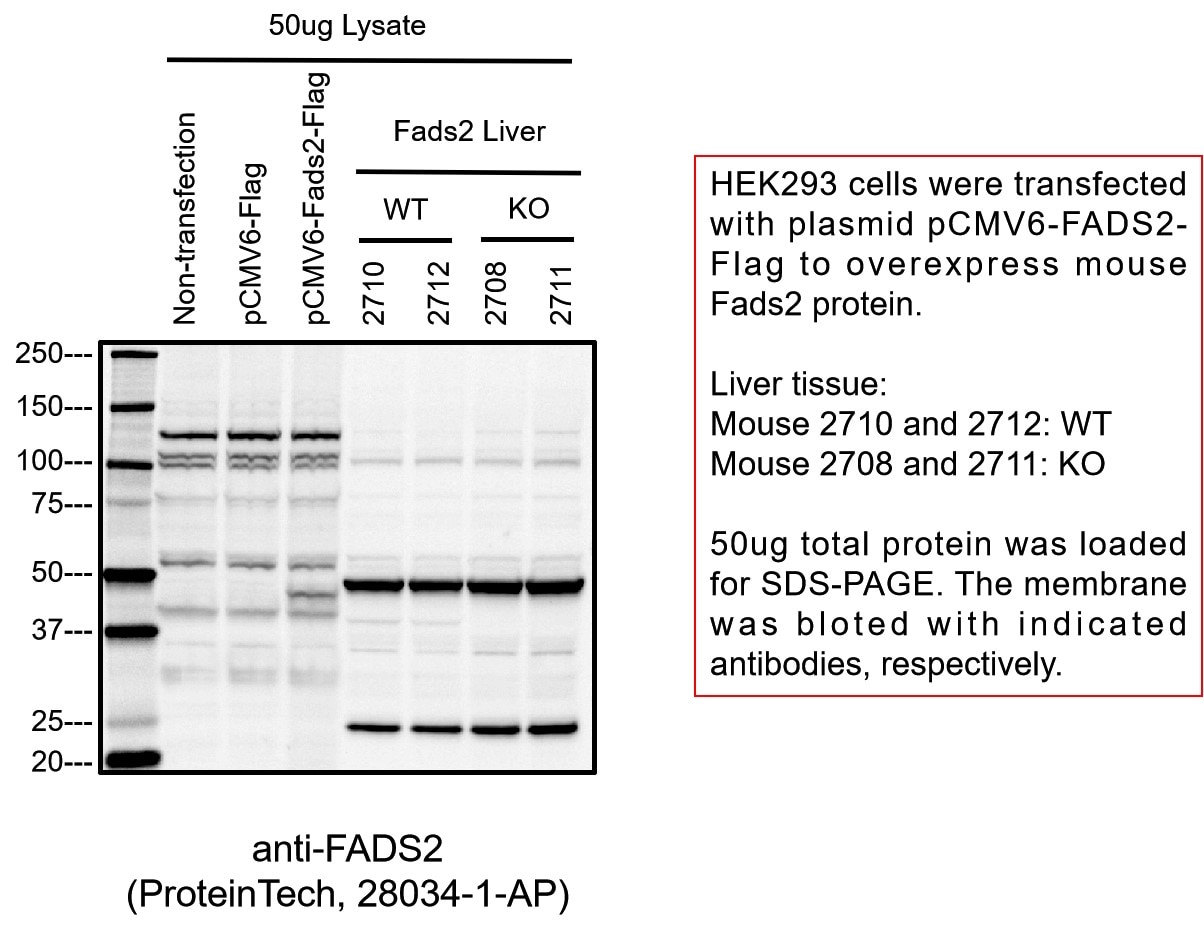 |
FH XIANFENG (Verified Customer) (02-06-2020) | Works well with overexpressed mouse FADS2, but does not work with endogenous mouse FADS2 (mouse liver) .
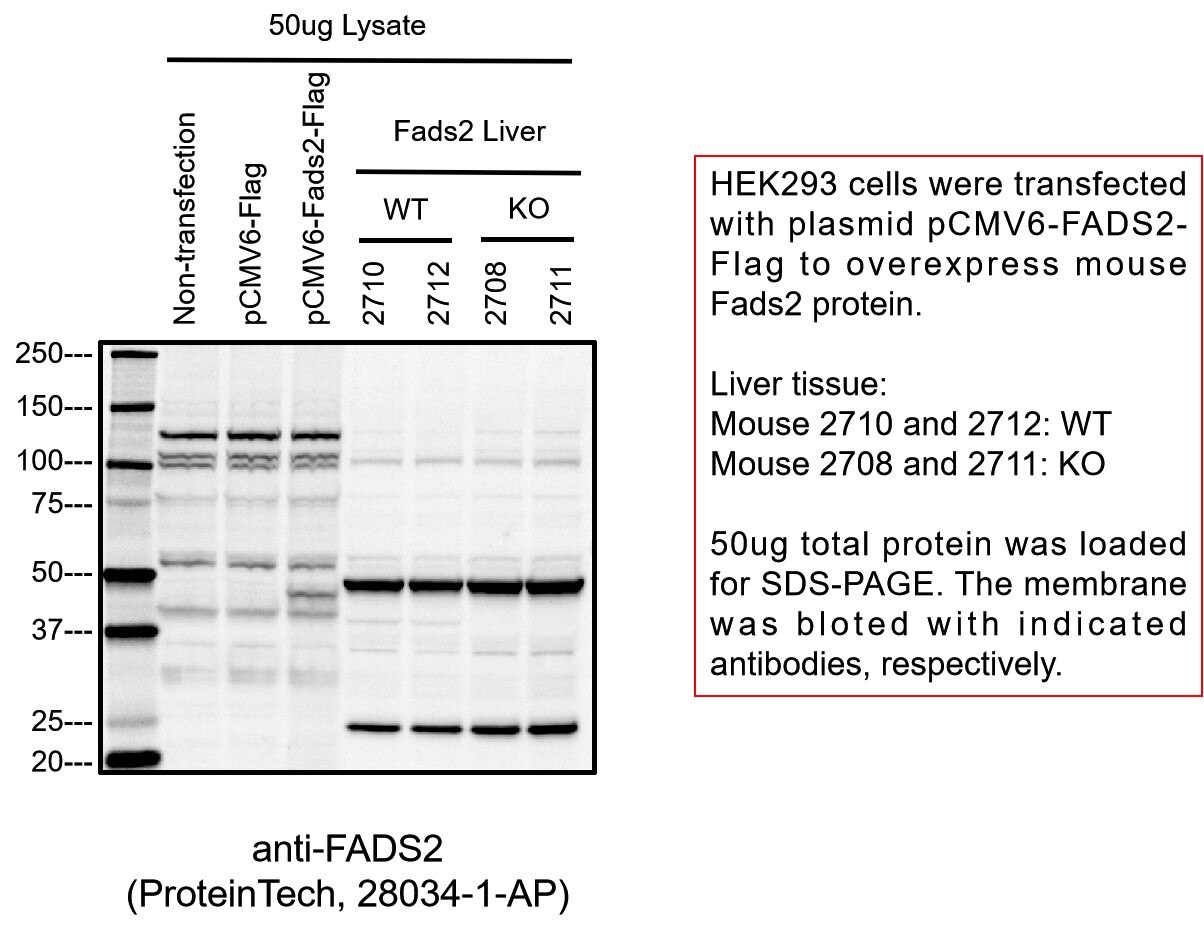 |

